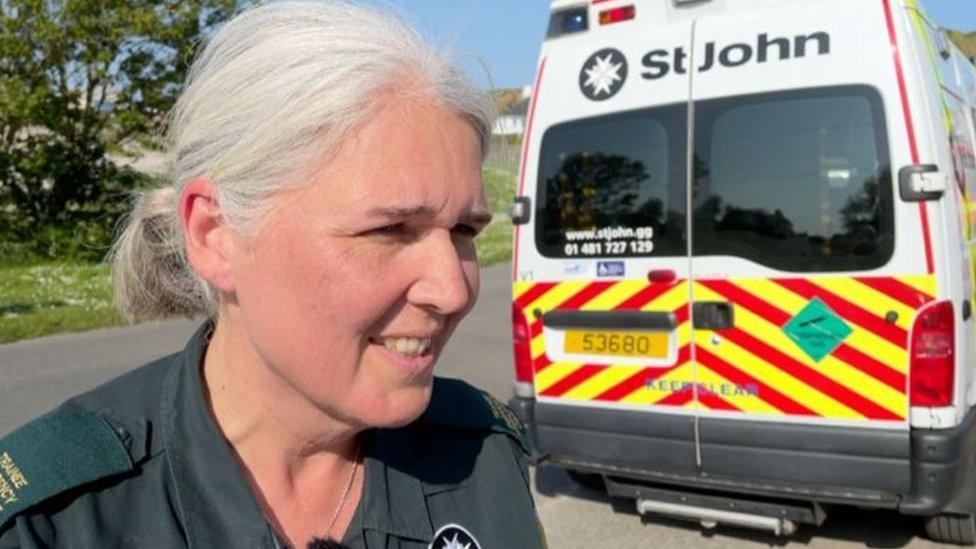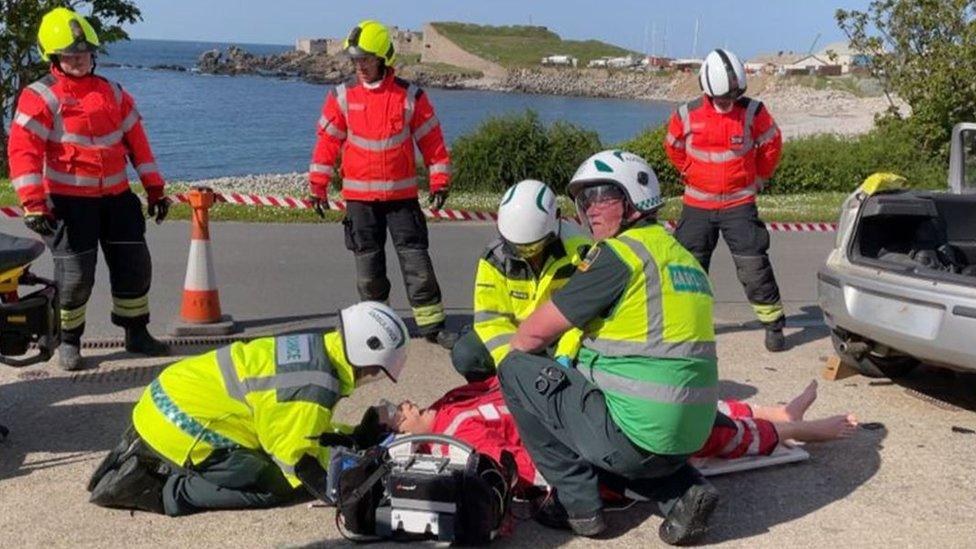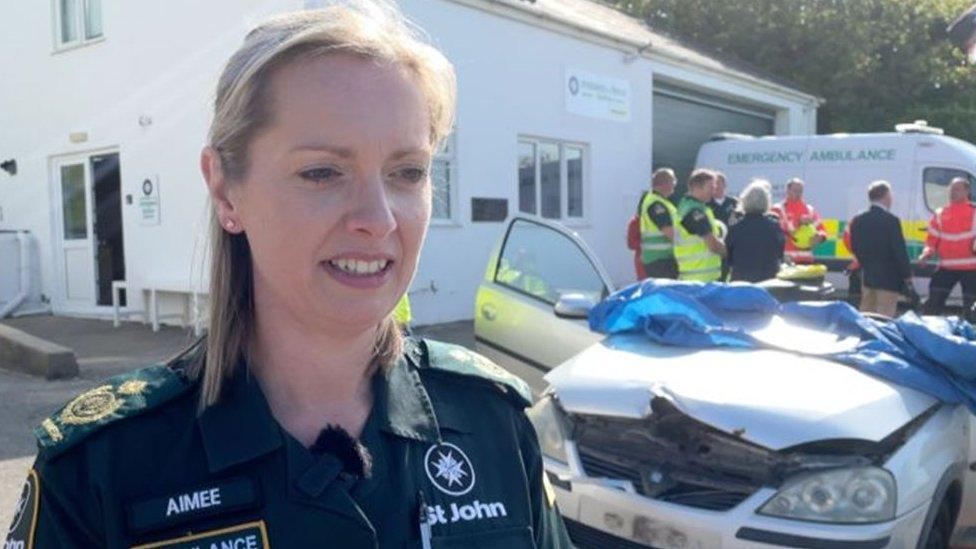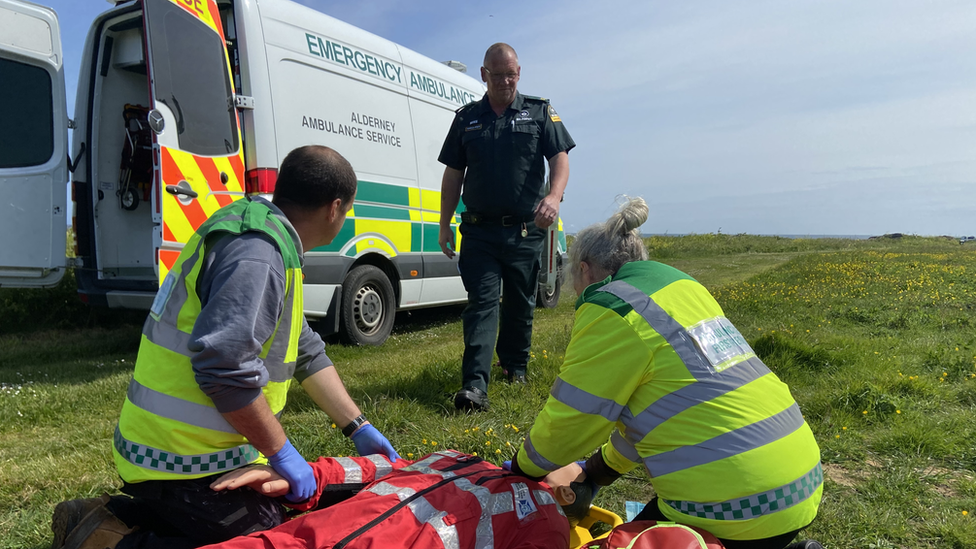What is it like to be part of Alderney’s ambulance crew?
- Published

Maria Collier joined the service after working as a teacher for 25 years
St John Ambulance and Rescue Service is looking for more emergency ambulance crew to work in Alderney.
When it took over responsibility for the service in April four local staff were initially recruited, supported by a member of Guernsey staff.
BBC journalist Charlie Le Noury has been to Alderney to find out more about the service.
Emergency vehicles seem at odds with the quiet rural scenes of Alderney, but with more than 2,000 residents, the island is not immune to emergencies.
Maria Collier moved to Alderney in 2018 for a teaching post and after 25 years in the profession she said she fancied a change.
"At the same time they were advertising for this new service on Alderney and I just thought wow - that's something I'd really like to do," she said.

The ambulance crew in Alderney has to work closely with other emergency services in the island
"It sounds a bit corny but I wanted to give back to the community because I love living here and it's something that I still felt I could be of use.
"So, that's how I ended up here and I was very lucky they employed me because I love the job - it's fantastic."
Each day the crew in Alderney starts its day with a video debrief with Guernsey.
The team operates in a different way to its sister islands as when crew members are on shift they are on for 96 hours.
This is managed through a unique shift pattern, with a mix of being in the station and at home.
"We do four days on and two days off, that's four days and nights on and then two days off," Mrs Collier said.
"We're on shift for such a long time we have to carry on our lives at the same time so that's a major difference but we get all the same types of jobs."
'Keep training'
The team can go from more than five call-outs over a 24-hour period to quiet times with no calls, but there is little room to relax.
"We're keeping ourselves fresh by doing training. We have book work we need to be doing, we've got videos we need to be doing," Mrs Collier said.
"And also, every two months we go over to Guernsey for four days and do four days on the road in Guernsey so that keeps our training up to date."
Each team member has an "at home kit" with emergency equipment so they can be deployed at any time.

Aimee Lihou said she had been struck by how willing the teams in Alderney were to pull together
Aimee Lihou, head of quality and patient safety and the senior officer responsible for Alderney, said: "What would be fairly simple in terms of a clinical case for us in Guernsey for example, could be more challenging here, because actually despite only being 20 miles from Guernsey, they are incredibly remote in their set-up.
"And so you may have to manage something on island that in Guernsey you would have a big team to help."
This means the team also has to work closely with other emergency services in the island.
Miss Lihou said: "Partly because all of the services are small in their capacity and that's one of the things that has really struck me about working with the crew in Alderney is just the closeness and how willing everyone is to pull together."

Follow BBC Guernsey on Twitter, external and Facebook, external. Send your story ideas to channel.islands@bbc.co.uk, external.
Related topics
- Published24 August 2023
